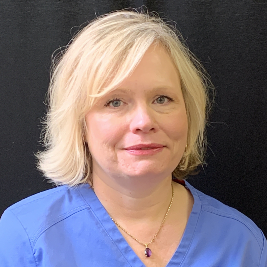Have you ever gotten a medical bill that totally caught you off guard? Out of nowhere, you are hit with an expensive surprise medical bill from your insurance company because you received care from a provider who is not contracted to work with your particular insurance company. Surprise medical bills can happen to anyone and as a consumer, you have the right to more information. Innova Primary Care is committed to renewing health care from the inside out. One of the ways we do this is by keeping our patients informed.
Information is power
We believe information is power, and you have the right to know. It’s estimated that close to 5 million people in the United States receive surprise bills each year. Surprise bills occur when out-of-network providers become involved in a patient’s care. How does this happen? And what can you do to protect yourself against surprise billing? Read on for more information.
As the costs of health care continue to skyrocket in the United States, the last thing anyone needs is a surprise bill. It isn’t right. And finally politicians are doing something about it. According to a study from the Kaiser Family Foundation (KFF) from 2020, 2 out of every 3 adults say that they are concerned about surprise medical bills and worry about their ability to cover the costs of health care. It is estimated that one-fifth of all claims due to emergency visits result from surprise bills. The statistics aren’t much better for hospital visits that occur within a hospital system covered by the patient’s insurance company as one-sixth of all medical claims come from this situation.
The 2020 KFF study also found that thousands of dollars may arise from surprise medical bills making an already expensive visit even more challenging to manage.
Emergency surprise billing
Surprise bills occur when you receive care from a provider outside of your network, especially in emergency settings where you are at your insurance’s preferred hospital. Your ambulance ride may be provided by a company that is not partnered with your insurance company. You may see specialists or providers, receive diagnostic tests or lab work that are not connected to your particular insurance company. However, in an emergency setting, it’s very unlikely that your first question is, “Are you covered by my insurance company?”
Routine surprise billing
Surprise bills can happen during routine visits as well. For example, suppose your in-network general practitioner sends you to a specific location for lab work. Because you are a good patient who wants to stay on top of your health, you go to the recommended facility only to receive a bill for service saying the lab service is not in contract with your insurance company. Due to no fault of your own, you were sent to an out-of-network facility and now you are charged for services.
While this is not an emergency situation, the outcome is the same: a surprise medical bill. The same thing can happen when you are sent for scans or to an in-network hospital to receive care unknowingly you are serviced by an out-of-network physician. Again, you, the patient, are held responsible due to no fault of your own.
Surprise balance billing
Balance billing occurs when you receive a bill from an out-of-network provider for what your insurance company will not cover. Because the provider of care is not in a contract with your insurance company, they are allowed to charge you for the difference.
This particular situation only applies to private insurance as Medicaid and Medicare services do not allow for balance billing.
New Legislation
The good news is that The No Surprises Act will go into effect in 2022. The No Surprises Act was signed into law in December of 2020 with the mission to assist consumers by not holding them responsible for charges accrued due to unexpected bills from out-of-network providers. The new law will go into effect on January 1, 2022 putting the onus on insurance companies to cover unexpected charges AND keep their in-network provider directories timely. Under the act, employer private health plans and policies outside of the marketplace fall under the act as well.
So what?
What do the provisions of The No Surprises Act mean for you? The No Surprises Act provides you, the consumer, with an added layer of protection against surprise billing and can mean the difference between a scary medical bill and security. Here are is what you can expect:
Private insurance companies must foot the bill at an in-network rate for emergency services including ambulatory services at in-network hospitals and facilities. If your insurance company is partnered with a specific hospital system and you are taken there for care, you are covered.
If you feel as though your bill is a surprise, you have the right to appeal charges
No more balance billing…mostly
Balance billing is now out the window for emergency services, in most cases.
In this instance, there is a caveat. The same is not true for non-emergency settings unless providers have the patient’s written consent within a 72-hour window of service. In essence, insurance providers must alert consumers to the fact that they do not cover services at a particular location and must do so within 72 hours and get written consent from the consumer.
Additionally, this bill puts the burden on out-of-network providers to determine a patient/consumer’s eligibility for care. Out-of-network providers can’t hold patients responsible nor bill them more than the in-network costs of service.

Information requests
Consumers now have the ability to ask for information about covered services in advance.
This means that you, the health care consumer, can ask about coverage and insurance companies must comply. You don’t have to wonder whether or not your diagnostic test or lab work is covered, you can find out by simply requesting information.
Surprise billing will hopefully become a thing of the past with the implementation of The No Surprises Act.
However, as a consumer, you have the right to ask questions and receive answers. Innova Primary Care is here to assist you in any way possible. If you have a question about the services, you receive or the recommendations for testing from your care provider, please ask. Additionally, when you can, consult with your insurance company and settle for no less than absolute transparency.




 About
About

 About
About About
About About
About
 About
About About
About

 About
About About
About About
About About
About











